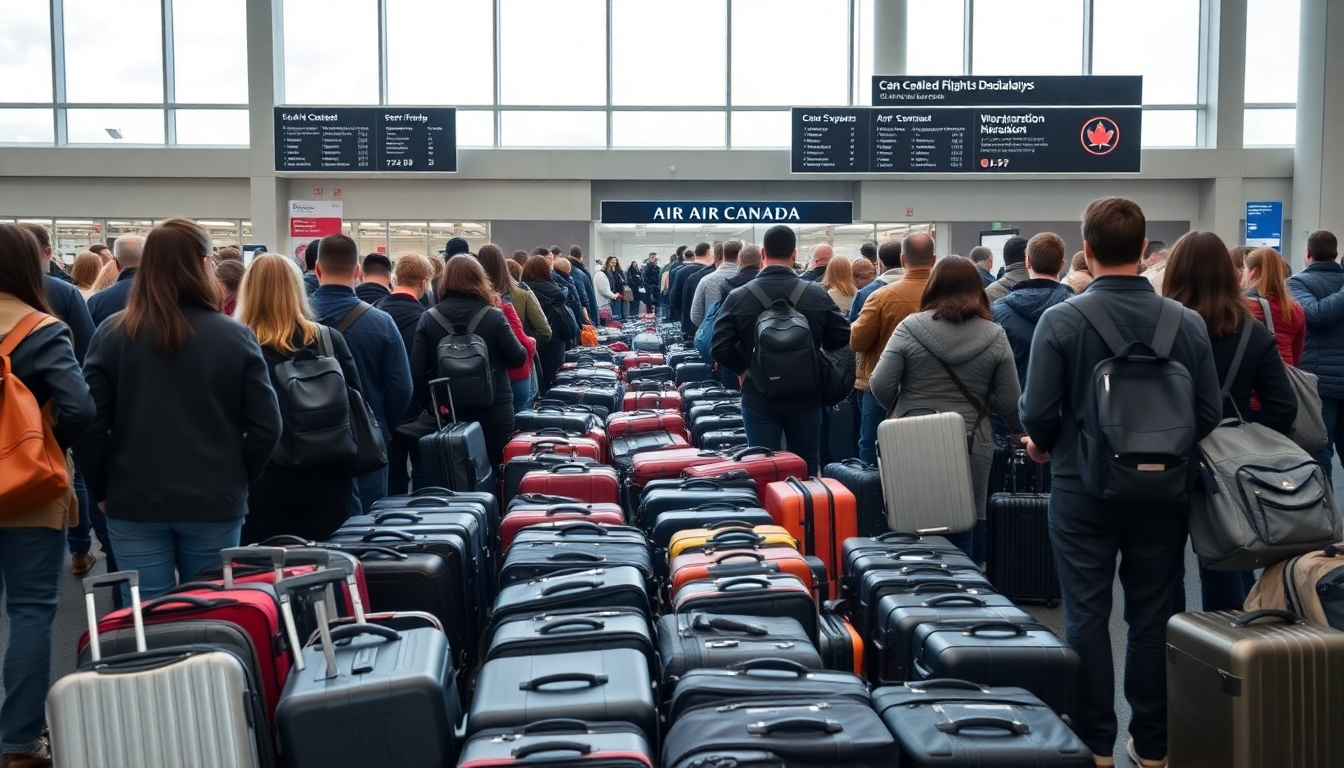Table of Contents
The recent strike by Air Canada’s unionized flight attendants has thrown a major wrench into the travel plans of countless passengers, impacting around 130,000 customers each day. This labor action, the first of its kind for the airline since 1985, comes on the heels of failed wage negotiations and brings to light the evolving dynamics between airline employees and management as economic pressures continue to rise.
What does this mean for travelers? Let’s dive in.
Overview of the Air Canada Strike
In the early hours when the strike began, the Canadian Union of Public Employees (CUPE)—representing about 10,000 flight attendants—announced their decision to halt work after negotiations for wage increases stalled.
Consequently, Air Canada suspended all flights, including those operated by its budget subsidiary, Air Canada Rouge. The result? A wave of cancellations, leaving the airline urging customers to steer clear of airports unless they have confirmed tickets with other carriers.
Have you ever had to change your travel plans at the last minute? It’s not just inconvenient; it’s downright frustrating.
The airline’s latest wage proposal suggested that a senior flight attendant could earn an average of CAN$87,000 (about $65,000) annually by 2027.
However, CUPE has criticized this offer as inadequate, arguing that it doesn’t keep pace with inflation or reflect industry standards. This contention adds another layer of complexity to the ongoing dialogue between the union and the airline. How can both parties find common ground?
Impact on Passengers and the Airline Industry
As the strike drags on, the impact on travelers is becoming increasingly significant. Each day brings more affected customers, creating a chaotic atmosphere at major Canadian airports. Passengers have reported a range of disruptions, from last-minute flight cancellations to the need for rebookings to alternative destinations.
Can you imagine the stress of trying to find a new flight in such a hectic situation?
Experts are weighing in, noting that this strike could send ripple effects across the airline sector. Rafael Gomez, who heads the University of Toronto’s Centre for Industrial Relations, points out that the public sentiment around flight attendants not being compensated for their ground work could influence other airlines. This situation raises important questions about industry practices and the treatment of flight attendants. Might we see other unions stepping up to advocate for better conditions?
Economic Implications and Potential Resolutions
The Business Council of Canada has expressed concerns that the ongoing strike could worsen the economic challenges facing the nation, particularly in light of ongoing trade disputes with the United States. They warn that disruptions to air travel and cargo transport services could have immediate and extensive repercussions on the economy. In response, Air Canada has called on the federal government to impose binding arbitration to resolve the dispute—a request that CUPE has firmly opposed. Is there a way forward?
As we watch the situation unfold, the airline industry remains on high alert, closely monitoring the strike’s impact on operations and the potential for future negotiations. The outcome of this labor dispute is likely to influence not just Air Canada’s practices, but also those of its competitors, shaping the Canadian airline landscape for years to come. What does the future hold for travelers and airline employees alike?





